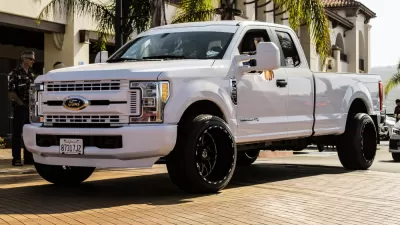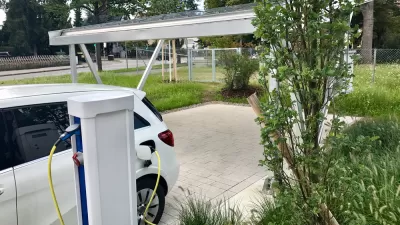Conventional oil supplies peaked at about 70 million barrels a day in 2006 according to the IEA, and will hold steady until 2035. However demand, primarily from China, will require an increase of 20% in oil to be filled by 'unconventional' supplies.
Sure to be used as validation of 'peak oil' by some, the report also shows the importance of unconventional oil supplies, such as "Canada's tar sands and natural gas liquids".
"According to "the International Energy Agency, the Paris-based organization that provides energy analysis to 28 industrialized nations... the production of conventional crude oil...probably topped out for good in 2006, at about 70 million barrels a day."
A graph shows that crude oil "yet to be found or developed" will continue to keep the conventional supply at 70 million barrels until 2036.
"The 2010 edition of the World Energy Outlook was released on 9 November" and shows what governments must do to tackle world energy insecurity and climate change.
[Contributor's note: The article fails to distinguish China's oil consumption from its energy consumption, "which the report estimates is now the world's largest energy user" In 2007, the U.S consumed 20.68 million barrels daily; China: 7.6 million; total world consumption: 85 mb]
Thanks to Mark Boshnack
FULL STORY: Is ‘Peak Oil’ Behind Us?

Maui's Vacation Rental Debate Turns Ugly
Verbal attacks, misinformation campaigns and fistfights plague a high-stakes debate to convert thousands of vacation rentals into long-term housing.

Planetizen Federal Action Tracker
A weekly monitor of how Trump’s orders and actions are impacting planners and planning in America.

In Urban Planning, AI Prompting Could be the New Design Thinking
Creativity has long been key to great urban design. What if we see AI as our new creative partner?

King County Supportive Housing Program Offers Hope for Unhoused Residents
The county is taking a ‘Housing First’ approach that prioritizes getting people into housing, then offering wraparound supportive services.

Researchers Use AI to Get Clearer Picture of US Housing
Analysts are using artificial intelligence to supercharge their research by allowing them to comb through data faster. Though these AI tools can be error prone, they save time and housing researchers are optimistic about the future.

Making Shared Micromobility More Inclusive
Cities and shared mobility system operators can do more to include people with disabilities in planning and operations, per a new report.
Urban Design for Planners 1: Software Tools
This six-course series explores essential urban design concepts using open source software and equips planners with the tools they need to participate fully in the urban design process.
Planning for Universal Design
Learn the tools for implementing Universal Design in planning regulations.
planning NEXT
Appalachian Highlands Housing Partners
Mpact (founded as Rail~Volution)
City of Camden Redevelopment Agency
City of Astoria
City of Portland
City of Laramie




























